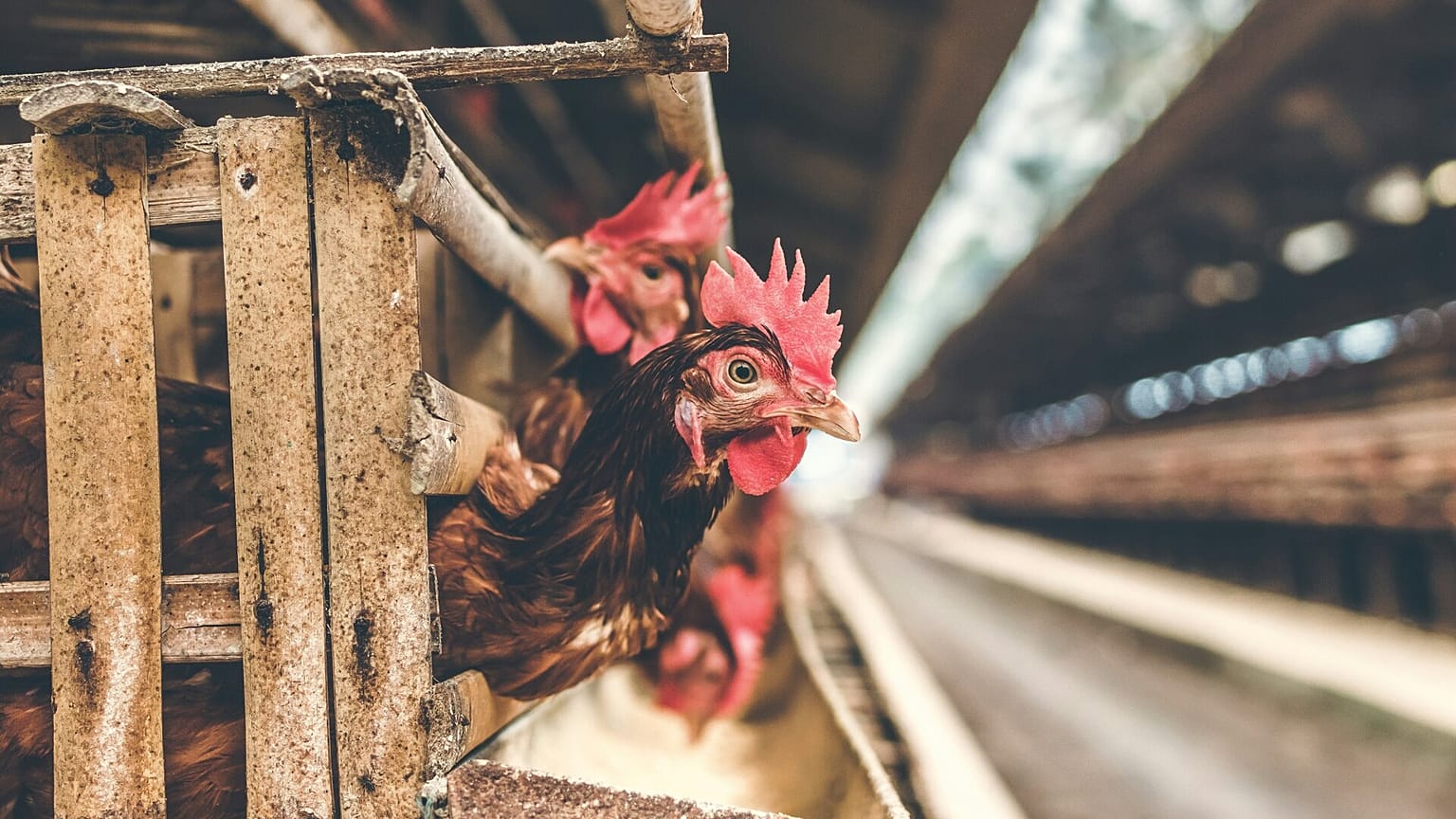Farmland the size of Mexico could be freed up if we stop feeding grain to factory-farmed animals, says NGO.
Two billion more people could be fed every year if the world stopped feeding grain to factory-farmed animals, according to a new report published today by Compassion in World Farming.
 ADVERTISEMENT
ADVERTISEMENT
 ADVERTISEMENT
ADVERTISEMENT
The world could also free up farmland nearly equal the size of Mexico if the practice were to end.
Released on World Food Day, the findings reveal the extent to which factory farming has affected food supplies, as well as the inefficiencies that worsen global food waste.
“It is simply scandalous that while hundreds of millions of people go hungry and we face a triple planetary crisis, we are allowing hundreds of millions of tonnes of food to be wasted every year by being fed to factory-farmed animals,” says Peter Stevenson, chief policy advisor at Compassion in World Farming, the animal welfare and environmental NGO that produced the report.
A problem with many causes
Food waste is a complex issue with many causes.
Globally, the WWF reports that 1.2 billion tonnes of food – over 15 per cent of all production – is lost before it even leaves the farm.
According to EU statistics, the bloc wastes nearly 60 million tonnes of food every year on its own, a loss of €132 billion in total value. About 9 per cent of that waste is from primary food production such as farming and 18 per cent from the processing and manufacturing sector. More than half is reported to come from households.
This new analysis offers a counter-narrative.
By the NGO’s calculations, 766 million tonnes of grain are wasted each year by being fed to factory-farmed animals, which it claims is more than households (631 million tonnes), food service (290 million tonnes) or retail (131 million tonnes).
The impact of the practice also affects land use while expanding the use of monocultures, chemical pesticides and fertilisers that have knock-on effects on soil quality, biodiversity loss, and water and air pollution.
If the EU were to stop using grain to feed factory-farmed animals, almost 15 million hectares of arable land could instead be devoted to growing food for people, the NGO claims. That amounts to a land mass about the size of Greece.
Almost 125 million tonnes of grain in the EU are wasted by being fed to animals, the NGO adds. That’s enough to feed an extra 247 million people per year.
In the US, the figures are starker. Around 160 million tonnes of grain are used as animal feed, an amount that could feed more than 280 million more people.
The problem is compounded by inefficiencies in production.
The report says we yield just 3 to 25 calories of meat for every 100 calories of human-grade grain we feed to factory-farmed animals.
By its estimate, the world will need to produce around double the amount of grain to feed them by 2040 if nothing changes.
What is being done to address food waste?
Earlier this year, the EU approved its first legally binding targets for member states to cut food waste. Lawmakers agreed on a 30 per cent cut for retailers, restaurants, caterers and households by 2030, and 10 per cent for food processors and manufacturers.
Those figures represent a fraction of the amount member states had previously pledged.
“The EU and its member states committed to the UN Sustainable Development Goals 10 years ago, including a 50 per cent reduction of food waste across the entire supply chain,” Theresa Mörsen, a policy officer at the NGO Zero Waste Europe, said in February.
Compassion in World Farming proposes regenerative farming as a solution, suggesting that animals be fed products humans cannot eat, including pasture, by-products and food scraps. Alongside the report, the NGO has released an interactive tool that reveals the amount of food wasted through factory farming in several countries.
The group is now asking supporters to sign an open letter to urge governments to adopt policies that prioritise food production for people rather than animal feed.
“Governments must stop propping up wasteful grain-based factory farming with public money through subsidies and adopt fair policies that prioritise food over feed,” Stevenson declares.
The full report and interactive tool can be found here.
Correction: A previous version quoted Peter Anderson rather than Peter Stevenson.

















